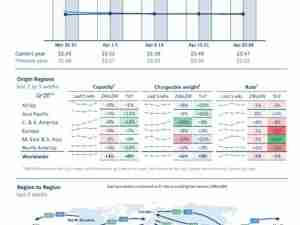EasyJet Plc recorded its first-ever annual loss and is reviewing ways to raise more funds after the Covid-19 pandemic wreaked havoc with the budget carrier’s summer schedule.
The U.K. company lost as much as 845 million pounds ($1.1 billion) in the year through September, according to a statement on Thursday. The airline has about 2.3 billion pounds in cash to survive an extensive slump and called on the state for further support.
“Aviation continues to face the most severe threat in its history and the U.K. government urgently needs to step up with a bespoke package of measures to ensure airlines are able to support economic recovery when it comes,” EasyJet said.
The company is in talks with the government for additional loans or other financing, Sky reported earlier.
Like other airlines, EasyJet has been hard hit by the coronavirus. A resurgence in cases across Europe has resulted in renewed travel restrictions that have quashed any hopes of a recovery in demand. EasyJet has raised over 2.4 billion pounds in cash since the start of the pandemic, including 419 million pounds from an equity increase and 608 million pounds by selling and leasing back planes.
The shares declined 0.2% to 522.60 pence as of 8:29 a.m. in London.
‘Managing Well’
“The company is expecting a weak winter season but is managing current flying for cash quite well,” Daniel Roeska, an analyst with Sanford C Bernstein, said in a reasearch note. “However cash burn remains quite high.”
The low-cost airline scrapped its dividend and will trim back its schedule over the slow winter season, offering only 25% of its normal capacity. It said Wednesday that it would temporarily close its Venice and Naples bases, serving the destinations with fewer flights from other hubs.
EasyJet earlier closed U.K. bases including Stansted to consolidate London-area operations at Gatwick and its Luton headquarters. In the fourth quarter it was running at about 38% of capacity, it said, missing an original target for 40%.
Ryanair Holdings Plc, its larger rival in the discount market, said last month that it would cut October capacity by a further 20%, in addition to a previous 20% cut.








